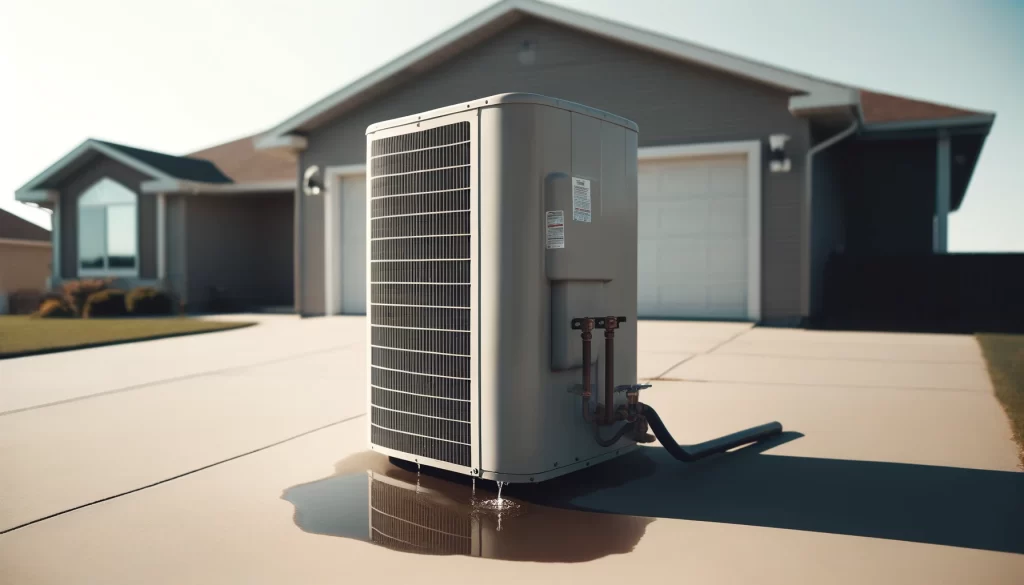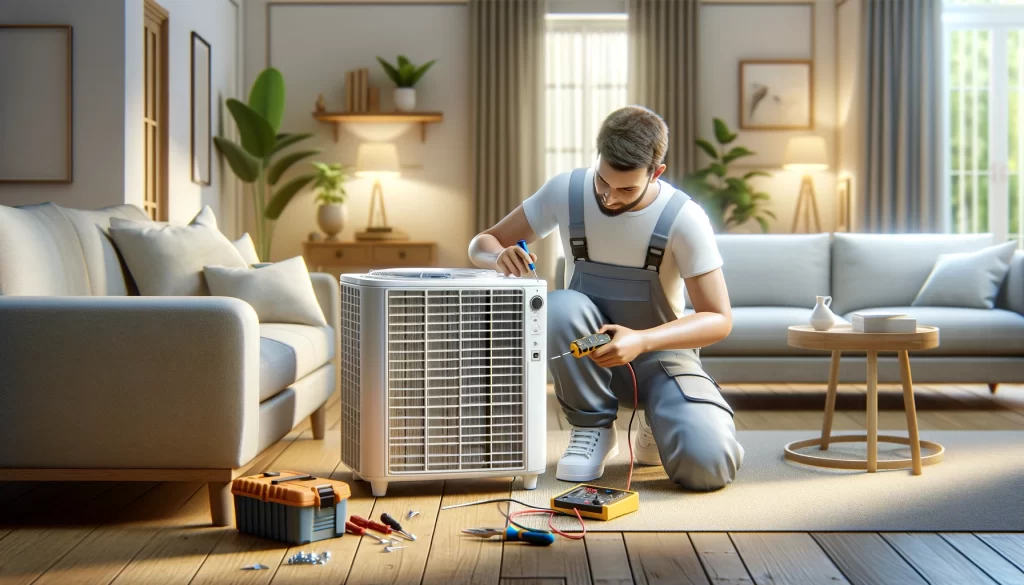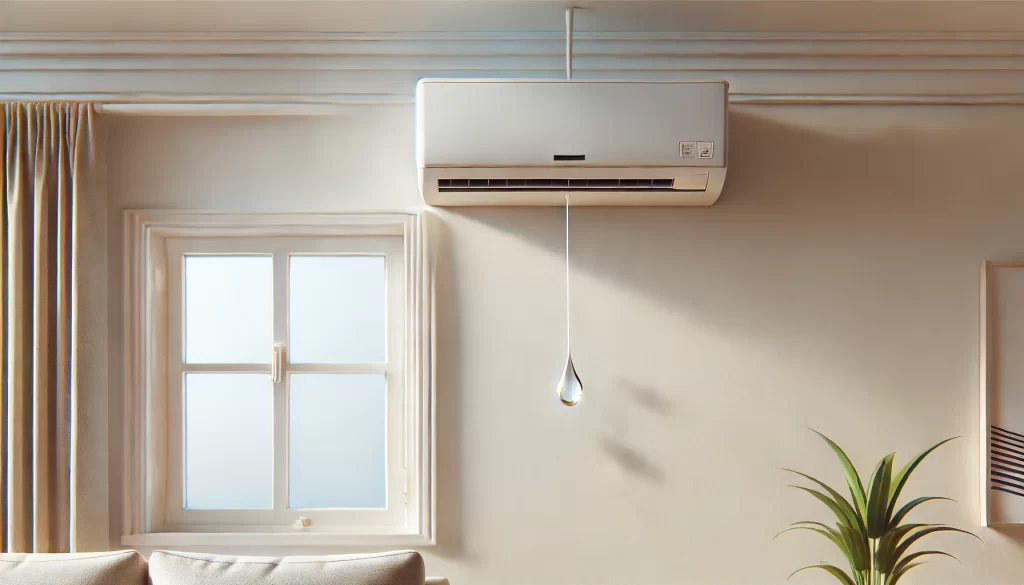
In 2024, the cost to repair an AC leak ranges from $200 to $1,500, depending on the type and severity of the leak. The most common AC leaks are refrigerant leaks, which are more expensive to repair than water leaks. Factors such as the type of refrigerant, the leak’s location, and labor charges also affect the total cost.
Breakdown of AC Leak Repair Costs
- Water leaks: $75 – $600
- Refrigerant leaks: $200 – $1,500
- Leak detection tests: $150 – $400
- Refrigerant recharge: $100 – $600
Costs Based on Type of Leak
- Water Leaks
- Caused by clogged condensate lines or damaged drain pans.
- Drain line cleaning: $75 – $250
- Drain pan replacement: $200 – $600
- Refrigerant Leaks
- Occur in refrigerant lines or coils, requiring more complex repairs.
- Leak repair: $200 – $1,500
- Refrigerant recharge: $100 – $600
Types of AC Leak Tests
To pinpoint a leak, professionals use various tests:
- Electronic leak detection: $150 – $400
- Nitrogen bubble test: $100 – $300
Other Factors Affecting AC Leak Repair Costs
Several factors can influence your final bill:
- AC unit size
- Type of refrigerant
- Location of the leak
- Age of the unit
- Labor costs (technicians charge $75 to $150 per hour)
Cleanup Costs
Leaks can cause damage to floors and walls, adding to your repair bill:
- Drywall repair: $300 – $800
- Floor repair: $200 – $500
Costs for Floor Repair or Replacement
Water damage from leaks can lead to floor repairs:
- Minor floor repairs: $200 – $500
- Extensive replacement costs can exceed $1,000 depending on the material.
Drywall Repair Costs
Water leaks can damage drywall, and repairs typically cost between $300 to $800 depending on the severity of the damage.
Cost to Recharge Refrigerant
After a refrigerant leak is repaired, the system often requires recharging:
- R410A refrigerant: $100 – $320
- R22 Freon: $180 – $600 (R22 is being phased out, so costs are higher)
How to Tell If Your AC Has a Leak
Signs of a possible AC leak include:
- Warm air blowing from vents
- Ice on refrigerant lines
- Hissing or bubbling noises
- Higher electricity bills
Should You Repair or Replace Your AC?
If your AC is old or has frequent issues, replacement may be more cost-effective. Consider replacing the unit if:
- It’s more than 10 years old
- It uses R22 refrigerant (which is being phased out)
- Repair costs exceed 50% of the cost of a new unit
Tips to Save Money on AC Leak Repair
- Schedule repairs during off-peak seasons (spring or fall) when labor rates might be lower.
- Regular maintenance helps catch leaks early, potentially saving money on major repairs.
DIY vs. Professional AC Leak Repair: What’s Better?
While DIY repair kits are available for $30 to $160, they’re only suitable for minor leaks. Due to safety concerns and legal regulations around refrigerant handling, complex repairs or refrigerant handling should be left to professionals.
Preventing AC Leaks: What You Need to Know
Regular maintenance, including cleaning filters and checking the condensate line, can help prevent leaks. Annual AC tune-ups are a good investment to avoid costly repairs down the line.
For more information on related cooling system repairs, you can check out this helpful guide on air cooler repairs. It provides additional insights on how to address issues with cooling devices, complementing the details in this article about AC leak repairs.
AC Leak Repair FAQs
How much does it cost to fix a leaking AC unit?
Repairing an AC leak costs between $200 and $1,500, depending on the type of leak and necessary repairs.
Can an AC leak be fixed?
Yes, most AC leaks can be fixed. However, some leaks in critical components like the evaporator coils might require replacement.
Are car AC leaks expensive?
Car AC leak repairs typically cost between $200 and $1,500, depending on the vehicle and leak severity.
Is it bad to run AC with a leak?
Running an AC with a leak can lead to damage, especially to the compressor, and result in higher energy bills.
Is an AC leak a big deal?
Yes, AC leaks can lead to reduced cooling efficiency, higher utility costs, and potential damage to other parts of the unit if left unrepaired.

